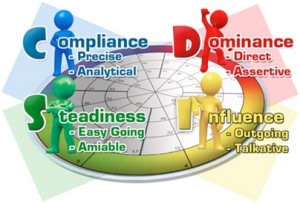People Precision works with your company’s Hiring and Leadership teams in four key areas:
Executive and Leadership Coaching
We believe the primary purpose of executive and leadership coaching is to improve and groom employee performance in areas directly connected to achieving goals that fuel company performance. Coaching for performance establishes a positive, incentivized experience for the recipient, grounded in support, development and a conscious decision to invest in their career. Sponsored targeted development through professional coaching works to further an organization’s future performance while simultaneously developing and investing in your employees.
Recruitment and Selection
- We can help you identify your top talent, understand how to assess candidates based on your current key contributors as well as relevant market data and select the candidates with the highest probability of high performance and success. Assessments can be customized for many disciplines including Executives, Managers, Sales talent, Customer Service, Finance and general positions.
- We can start from the beginning, helping you to benchmark a job to ensure that the hiring team is clear about the talent they are hiring. Our approach benchmarks a specific job, not the person, in an interactive process used for development, selection, retention and management. The job benchmarking process results in key accountabilities specific to the job that can be used to generate talent comparisons as well as formulate job descriptions. Our selection process leads to an understanding of the knowledge, intrinsic Motivators, personal attributes, Behaviors (DISC) and skills required of each key accountability for the job in question.
- When using the job benchmarking process in selection, our best practices yield a 92% success rate in selecting the most suitable talent for the role. The process also meets guidelines set by the HRC, EEOC, and OFCCP and is consistently reviewed to ensure the tools are free from unlawful disparate impact.

Employee Development
The successful alignment of a company’s talent with its business strategies fuels growth. Those that foster a continuous learning culture find that developing talent pays big dividends. Market leaders gain a competitive edge when they hire, retain and develop today’s high potential employees into the superior performers they will need tomorrow.
Employee development starts early – right from the on-boarding practices. Successful onboarding leads to higher job satisfaction, better job performance, greater organizational commitment and a reduction in stress. Your on-boarding process doesn’t need to begin on the employee’s first day; rather, we have found the hiring process to be the first opportunity to ensure workplace readiness. What better way to prepare a new employee (and the new employee’s team) than to engage in job benchmarking and candidate assessments, ensuring that the new employee is in the position that’s the right role for that individual? We’ve learned that employees who are in the job that is best suited to their unique sets of skills and inclinations are happier, more productive and thus more likely to remain onboard long-term.
And employee development continues – on the job, through promotions, leadership roles, succession planning and continually equipping your future talent with the skills required to execute your business plan.
Communication and Team Performance
Why does communication matter? An individual’s behavioural preferences are a clear indication of their communication approach and style. People who operate with very different styles have a difficult time “hearing” each other and
communicating effectively. Style dictates our body language, our pace, word choice and task or people preference. In the corporate environment, we are dealing with colleagues, prospects, clients and management that can be very different behaviourally. If time is spent enhancing employee awareness as to their own preferences and behaviors and how to adapt to the style of others, the effectiveness of individuals, teams and organizations increases immediately.
DISC is a system for understanding oneself and others, to communicate and work together most effectively. The increased understanding to be gained can be applied to almost any workplace situation: managing and leading, communicating with customers and colleagues, team performance, sales, and vendor relationships. Participants learn more about their unique strengths and more importantly, how to adapt to others.
Recent Comments